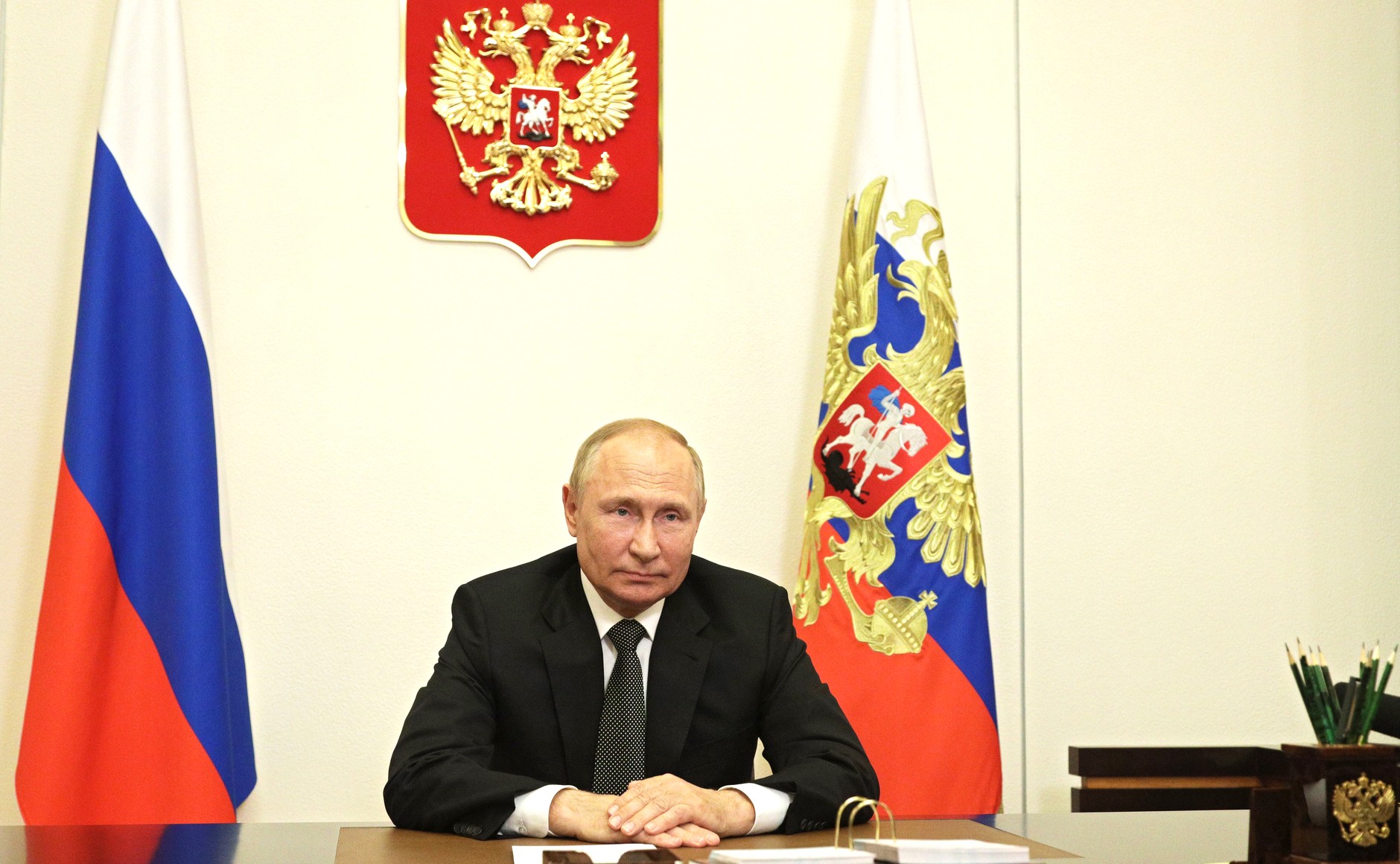Putin says Pelosi’s Taiwan trip was a ‘thoroughly planned provocation’
This week in China-Russia relations: The People’s Liberation Army is sending troops to Russia to join military games, as Putin offers moral and ideological support for his best friends in Beijing.

In an address to the 10th Moscow Conference on International Security, Vladimir Putin denounced U.S. House of Representatives Speaker Nancy Pelosi’s visit to Taiwan, saying, “The U.S. escapade toward Taiwan is not just a voyage by an irresponsible politician, but part of the purpose-oriented and deliberate U.S. strategy designed to destabilize the situation and sow chaos in the region and the world…We regard this as a thoroughly planned provocation.”
Russian state media continued its coverage of Taiwan by reporting comments from China’s ambassador to Norway, Yì Xiānliáng 易先良. According to TASS’s coverage of Yi’s interview with Norway’s NRK TV broadcaster, the Chinese diplomat said that Beijing reserved the right to coerce Taiwan, although he clarified that this “does not necessarily mean the use of the entire complex of military measures.”
Putin winks at “trend of the times”
While at the Moscow Conference, Putin claimed that “the unipolar world is becoming a thing of the past…[It] is doomed. The historic geopolitical changes are going in a totally different direction.”
Putin appeared to be nodding to PRC framing and teleology, which holds that “the trend of the times” — what Beijing regards as the irresistible rise of the CCP — is inevitable.
- A People’s Daily op-ed on April 2022, penned by the authoritative Zhōng Shēng 钟声, claimed that “simply dividing the world in different blocs and stoking division and confrontation in the international community is America’s logic of bloc confrontation featuring Cold War mentality, which runs counter to the prevailing trend of the times that all countries share a common future.”
- A similar op-ed on August 6 said, “The [Democratic Progressive Party] should know that China’s reunification is the trend of the times that cannot be reversed.”
The Kremlin and the CCP have different foreign policy objectives: The Kremlin seeks to overthrow the constitutional democracy-led world order and replace it with a more traditional sphere-of-influence system, giving Putin a freer hand in the former Soviet Union and Eastern Europe. Doing so would, more importantly, squelch a normative, ideological threat that could challenge his domestic political standing. While the CCP’s aims are arguably more expansive and ambitious than the Kremlin’s — and perhaps more accepting of certain features of the international order, such as the trade system — it nevertheless shares many of Putin’s perspectives about the dangers of constitutional democracy.
By saying “historic geopolitical changes are going in a totally different direction,” Putin suggests he will continue to pursue his own long-held foreign policy goals, while nodding supportively at Chinese foreign policy actions that undermine the power of the United States and other constitutional democracies.
China, Russia holding combined military drills in September
Russia’s “Vostok” (East) exercises will be held from August 30 to September 5, and will be joined by Chinese troops. Four years earlier, Russia hosted China in the 2018 iteration of Vostok — the first time it ever invited a foreign country outside of the Moscow-dominated Collective Security Treaty Organization (CSTO). While about 3,200 Chinese troops took part in Vostok 2018’s land exercises, the People’s Liberation Army Navy (PLAN) also sent an apparently uninvited Dongdiao-class auxiliary general intelligence (AGI) vessel to monitor Russian naval assets during maritime exercises.
Indian troops will also participate alongside Chinese forces in the Vostok exercises, despite long-running territorial tensions between Beijing and Delhi. The U.S. and India are holding drills of their own from October 18 to 31 in the Himalayan mountain range, near the border with China.






